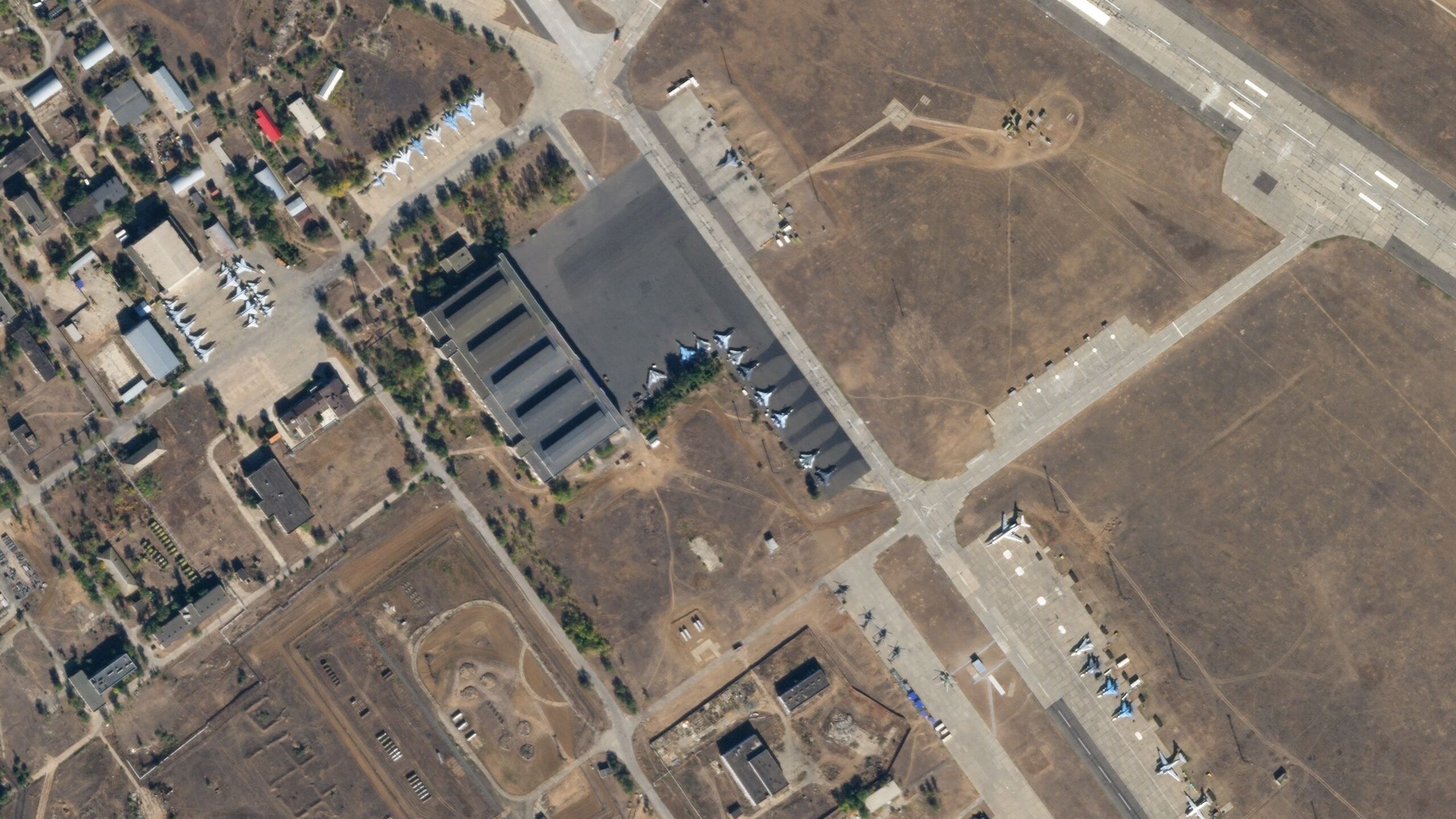THERESA HITCHENS

WASHINGTON: On Wednesday, Earth observation startup Planet celebrated its debut on the New York Stock Exchange — a move that a company executive tells Breaking Defense has Planet awash with cash and looking for ways to invest in new capabilities.
The firm’s big financial shift came on the heels of another potentially significant move: its government arm, Planet Federal, on Dec. 6 submitted a proposal for a major National Reconnaissance Office (NRO) electro-optical imagery contract, Robbie Shingler, co-founder and chief strategy officer at the San Francisco-based firm, told Breaking Defense today.
NRO issued a request for proposals on Nov. 3 for its Electro-Optical Commercial Layer (EOCL) of remote sensing satellites and expects to contract with multiple awards in the spring.
“This is, as you know, a five year contract with five one year options thereafter. So, this is a big deal and we put our best foot forward,” Shingler said. “What is really neat about this procurement,” he added, is that under the EOCL contracting plan, NRO envisions bringing on board new capabilities from contractors as they come online.
Thus, Planet is hopeful that NRO not only will be interested in its core offering of imagery from its current constellation of 21 SkySat birds, which sport a 50cm resolution, he said, but also intrigued by the potential of its newest constellation, called Pelican, which will have even higher resolution. Those satellites will begin launch in 2022 and are expected to be operational in 2023, according to the company’s website.
“We do expect that the duration contract is going to be for SkySat and Pelican as hopefully we get into a successful negotiation,” Shingler said.
Warchest For Investment
Planet now has about 700 employees, and, after it pays off its venture capital bonds and debts, Shingler said the company will have close to $600 million in cash. Planet CFO and COO Ashley Johnson told CNBC today that the firm has about $300 million to sink into new opportunities.
“We’re funded — more than that, we can actually do some strategic moves and investments. So we’re super pumped, super excited,” Shingler said, noting that this could even involve new acquisitions.
“We’re gonna go measurably into the future,” he stressed. “But right now, the majority of what we’re going to invest in is our global sales and marketing team. And also our software. Our software team is approximately a couple hundred people, and, oh man do we need to grow! There’s a tremendous amount of opportunity that we see when we make our data more simple to use and put it into business intelligence tools and put it into software developer ecosystems where people can then build new and novel applications.”
As it moves ahead, Shingler noted, Planet is looking less like a satellite company and more like a software company.
Shingler said Planet now has 700 “enterprise customers” — primarily large companies and large governments that employ geospatial data experts. The plan now is to make Planet’s data base easier and easier to use, he explained, so that “people who never have used geospatial data before then can have access to that information” this will “allow non-experts to use its geospatial data in innovative ways.”
In addition to becoming a publicly traded corporation today, Planet also registered as a Public Benefit Corporation (PBC) which requires the company to report on how, as a for-profit entity, it is benefiting the public based on a so-called purpose statement.
A PBC, Shingler explained, is a “new corporate form” and currently there are only about 10 companies registered on the New York Stock Exchange as PBCs.
“It really shows our intention around accelerating humanity toward a more sustainable, secure and prosperous world. And that’s our public benefit statement right there: A sustainable, secure and prosperous world,” he said. “Personally, I believe, the largest levers of social change that we have on this planet are mission aligned businesses.”
No comments:
Post a Comment